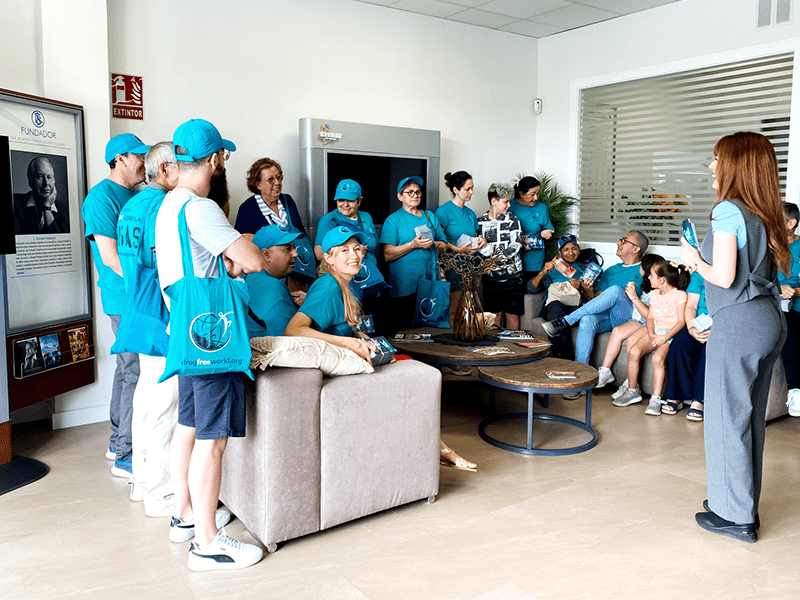Most people assume that first ladies have played a central role in politics since First Lady Eleanor Roosevelt served as her husband Franklin D. Roosevelt’s eyes and ears on the road across America. And, of course, Jill Biden plays an important role as a sounding board and advisor for her husband, never more so now when his renomination is questioned by so many Democrats. In reality, Americans have dissected the appearances, portfolios, and political influence of first ladies since 1797, when John Adams took the oath of office, and Abigail Adams became the first political first lady.
Early in Donald Trump’s administration, many pundits and staffers expressed hope that his wife, Melania, might be a moderating force on her husband once she joined him at the White House in June 2017. The Slovenian-born first lady reportedly “generally tries to advise him toward restraint,” and staffers anticipated she would reduce the frequency of Twitter rants. But the 45th president’s third wife proved to have less influence or cared to exert less influence than White House staffers anticipated.
For her part, Adams did not receive an official education, but as an autodidact, her vast reading skills and supple intellect overcame any deficiencies in her schooling. She was a thoughtful observer of people and politics, whether at home in Quincy, Massachusetts, or Paris and London, where she accompanied her husband on his diplomatic missions before his presidency. Her sharp political observations made her John Adams’s cabinet of one. Describing one of Adams’s most problematic department secretaries, she wrote that his “Manners are forbidding, [his] temper is sour and [his] resentments are implacable.”
Much like the speculation around Mrs. Trump, many 18th-century Americans speculated about Abigail’s influence and debated whether she was too involved with politics—conversations that will sound familiar to 21st-century audiences.
In 1799, when President Adams nominated William Vans Murray as a special envoy to Paris, the extreme members of his Federalist Party opposed the nomination. They lamented Abigail’s absence due to poor health. John giddily reported that Abigail was a frequent topic of conversation in Philadelphia: “Oh how they lament Mrs Adams’s Absence!— she is a good Counseller! If she had been here, Murray would never have been named!”
Abigail wrote back, equally amused. Their son had recently visited Boston, where several Federalists remarked,“We heartily wish THE OLD WOMAN had been with the President to prevent” the nomination. “This was pretty saucy!” Abigail replied to John, “But the old woman can tell them they are mistaken, for she considers the measure a master stroke of policy.”
Melania Trump has remained notably absent from Trump’s presidential campaign. She avoided campaign events, skipped dozens of fundraisers even at their Mar-a-Lago home, and stayed away from his Manhattan trial. When a reporter asked Melania if she would play a role, she replied, “Stay tuned.” News reports suggest she’s considering not moving to Washington in a second Trump administration.
Mrs. Trump isn’t the first first lady to avoid the spotlight. Bess Truman hated politics and wanted her husband to reject the offer to run for vice president in 1944. He declined her advice and became president just weeks after Franklin Roosevelt’s untimely death in April 1945. As First Lady, Bess declined to give press conferences and remained out of the public eye. Other first ladies, like Letitia Tyler or Caroline Harrison, were rarely seen due to poor health.
John appreciated Abigail’s talents more than anyone and cherished her as his closest advisor. She was privy to almost all his major deliberations, read official documents, and debated policies and proposals with gusto. In 1798, Secretary of War James McHenry visited the President’s House in Philadelphia—the White House was not yet completed—to deliver a list of proposed officers for new Army regiments. When he arrived, President Adams and the First Lady were in the family dining room, enjoying their breakfast. After John had reviewed the document, he handed it to Abigail, who perused the names and gave her approval.
By 1797, Abigail was one of the nation’s shrewdest and most accurate commentators on political affairs, especially during the 1800 campaign when Alexander Hamilton traveled across New England under the guise of bidding farewell to disbanding army units. She immediately recognized that Hamilton was attempting to garner support for Charles Cotesworth Pinckney in the upcoming presidential election. Through “his intrigues,” Abigail warned, “he will lose many more votes for Pinckney than he will obtain.”
Abigail’s political prognostications proved accurate. Many New Englanders took their local ties seriously. They didn’t take kindly to Hamilton’s efforts to defeat John Adams, their local son, and refused to split their votes between Adams and Pinckney.
Abigail’s influence was not universally celebrated, however. Toward the end of her husband’s administration, the more radical wing of the Federalist Party called the Arch Federalists, split with the president. Abigail made her dislike of the factions well-known. In return, they decried her as “a complete a politician as any Lady in the old French Court”—an allusion to the grande dames who pulled strings, hatched plots, and often swayed French kings before the French Revolution. But the snide remark also recalled the loose morals, prostitution, and extramarital affairs that made Versailles notorious, a thinly veiled shot at Abigail’s feminine virtue.
The criticism of Abigail foreshadowed the travails of other first ladies. In 1975, Betty Ford campaigned for the ratification of the Equal Rights Amendment, including calling officials in wavering states. Conservative activist Phyllis Schlafly accused her of interfering with states’ rights, and protestors held up signs in front of the White House that read “Betty Ford Get Off the Phone.”
Two decades later, Hilary Clinton, of course, intentionally carved out a working role for herself as first lady with her own West Wing office and her own healthcare portfolio—the administration’s signature legislative effort until it collapsed. Protestors hung an effigy from a wooden frame with a tag reading “I’m Hillary.” For good measure, they then doused the effigy in gasoline and set it aflame.
In Barack Obama’s first term, reports emerged that Chief of Staff Rahm Emanuel chafed at First Lady Michelle Obama’s influence on her husband. Most recently, Jill Biden’s detractors note her unparalleled influence on her husband and ask, “Is Jill Biden secretly running America?”
The press reports this week about Jill Biden clinging to power have a long pedigree. First ladies have been punching bags throughout our republic’s history because they rarely limited themselves to their roles as wives, mothers, and hostesses. They have always been advisors, campaigners, strategic thinkers, and essential sounding boards for their spouses, and it’s only our thinking that limits and chastises them.
Lindsay M. Chervinsky, Ph.D., is the incoming Executive Director of the George Washington Presidential Library. She is the author of the forthcoming book, Making the Presidency: John Adams and the Precedents that Forged the Republic. @lmchervinsky













